Home > Georgia > Georgia Crops & Livestock > Georgia’s Bountiful Blueberries
Georgia’s Bountiful Blueberries
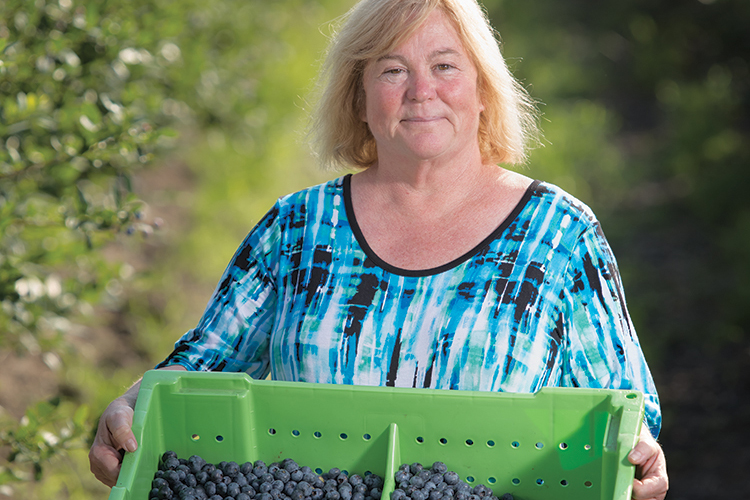
Georgia is ripe for the picking for blueberries. The state hasn’t always been a blueberry mecca, however. The industry slowly began growing after cultivars were first released in the 1950s. But then it started blooming in the ’70s thanks to several reasons: federal grant monies; an explosion from just around 100 acres of blueberries dotted across the state to 1,500 planted in southern Georgia; and the establishment of the Georgia Blueberry Growers Association (GBGA).
Today, the state ranks No. 3 in the nation for blueberry production. The Georgia blueberry harvest begins mid to late April, and each year for more than two decades, Adair “Dottie” Chambers Petersen has set to work overseeing the harvest of around 235 acres of blueberries at Chambers Brothers Blueberry Farm. The Homerville-based operation, which Petersen heads as CEO, is a family-owned farm founded by her father.
“He started the farm in 1978 and nobody had heard of growing blueberries,” she says. “There might have been one other blueberry farm in the county. You can say my father was a pioneer.”
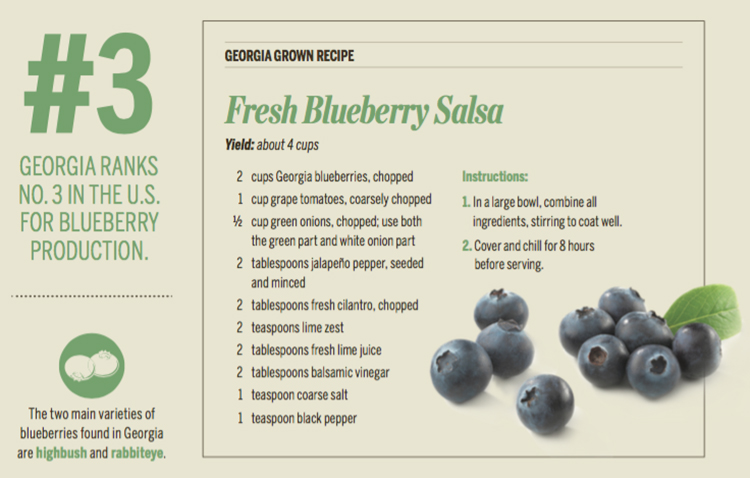 Today, Petersen carries on the legacy and continues to grow the family operation and
Today, Petersen carries on the legacy and continues to grow the family operation and
its blueberries. Chambers Brother Blueberries sells to vendors and has its eyes on exporting to overseas markets.
“Georgia has definitely become one of the top players in the industry. We’ve dedicated ourselves to a high- quality, safe product,” she says.
Peterson has seen the blueberry industry in Georgia grow up around her, so to speak. But she didn’t always know blueberries inside and out and had faced many challenges to learn new skills, such as learning how to fix a tractor. She was determined to learn and succeed in her chosen industry, though, and succeeded, even becoming president of the GBGA.
“I never in my wildest dreams thought I’d wind up as a blueberry farmer,” she laughs.
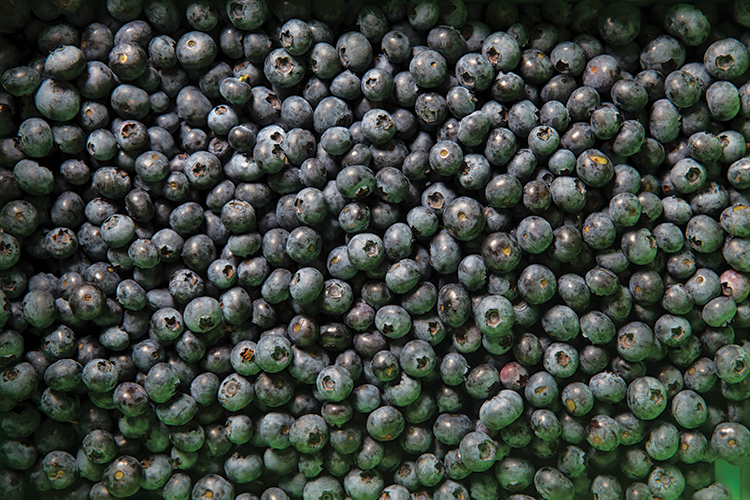 Georgia Quality
Georgia Quality
Renee Allen with the University of Georgia Extension knows blueberries. As an Extension agent for commercial blueberry production, she makes blueberry farm visits, answers questions about blueberries, and helps growers with disease and pest management. She also manages a blueberry research and demonstration farm, performs field research and educates the general public, among other activities.
“Blueberry production has grown exponentially over the past couple of decades, along with the acreage. We surpassed peaches a long time ago,” she says. “Blueberries are No. 1 in Georgia as a fruit crop.”
She says, however, Georgia is still gaining momentum in becoming known as a blueberry state.
“A lot of people don’t realize we even grow blueberries,” she says. But that’s starting to change, and experts like her are helping spread the word.
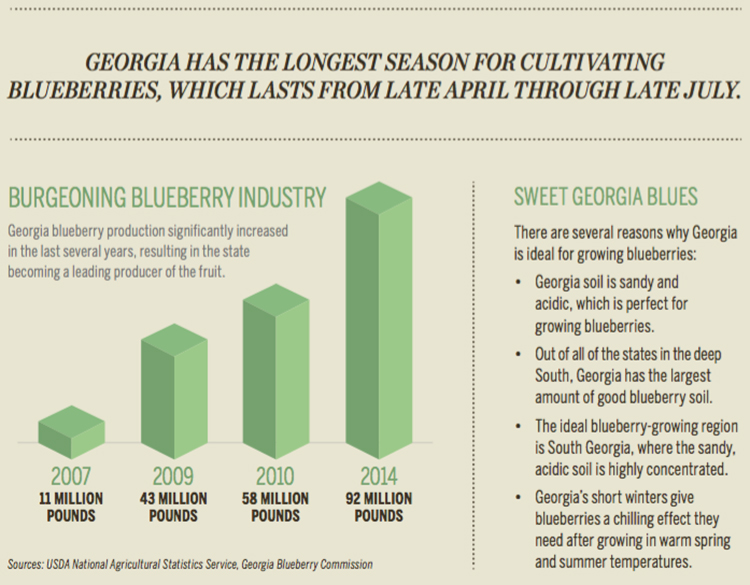 Georgia’s climate and soil make for excellent growing conditions for blueberries, Allen adds, like the humidity and swamp-type areas in the southeastern part of the state.
Georgia’s climate and soil make for excellent growing conditions for blueberries, Allen adds, like the humidity and swamp-type areas in the southeastern part of the state.
“Blueberries are naturally occurring near swamp-type areas, and we near the Okefenokee Swamp,” she says.
The industry’s technology is something to boast about, too. “We have an excellent group of growers in Southeast Georgia that are staying on the cutting edge of technology, both in the field and packing plants,” Allen adds.
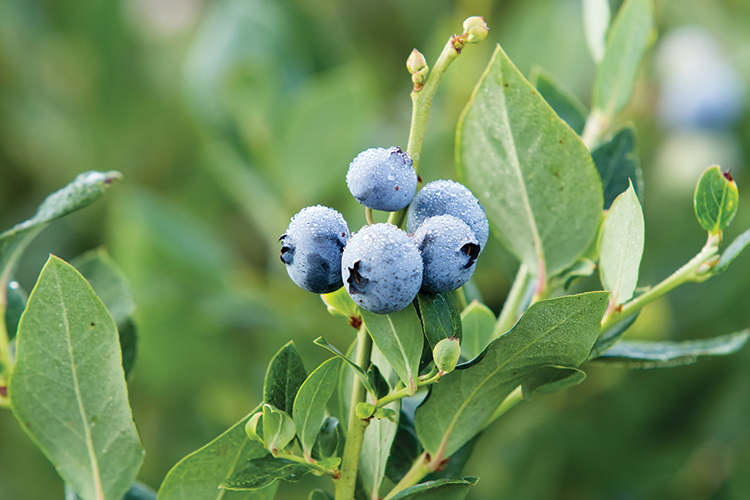 For example, packing plants use color and soft sorters to help improve fruit quality so that only the best blueberries make it through the packing process.
For example, packing plants use color and soft sorters to help improve fruit quality so that only the best blueberries make it through the packing process.
“Also, growers work hard to produce top-quality blueberries by being very active in educational programs and staying up-to-date on the latest research and innovations with the University of Georgia Extension, food safety and management practices.”



